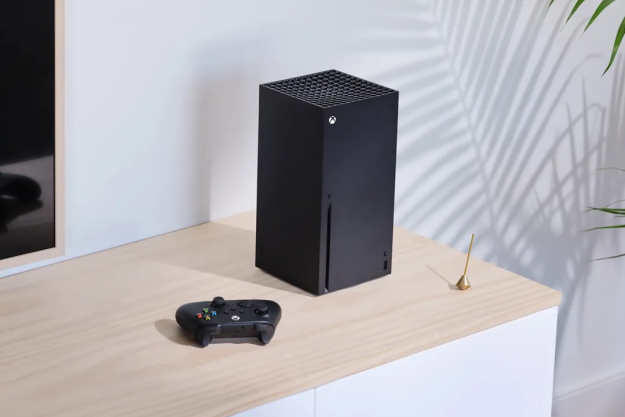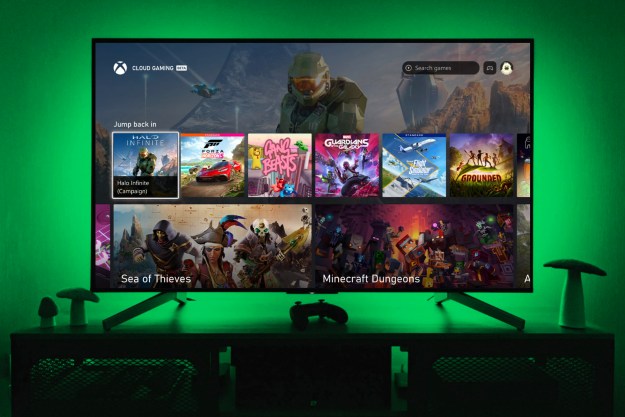
It’s the ‘80s all over again. When you look at the current landscape of gaming, where more females and mainstream consumers are spending more free time playing bite-sized (quarter-sized?) games, it’s like the ‘80s arcade heydays are back in full swing. And according to Seamus Blackley, Xbox co-creator and now the head of start-up game developer Innovative Leisure, that’s exactly why he hung up his CAA agent suits and turned his attention back to game development. Blackley is even writing code again. But this time he’s working with 11 legends from the ‘80s arcade days, who are developing 30 new games designed to launch on mobile and gravitate to other platforms. He talks about why he’s excited about the future of videogames and offers his uncensored thoughts on the current landscape in this exclusive interview.
What attracted you to the mobile gaming space?
History is cyclical and the thing that’s going on in mobile games is that we’ve hit a place in technology in which everyone can essentially have a powerful computer on them all the time. And that has given people social permission to try running different kinds of programs on those computers. With every generation of computers, the number one thing that people want to do on them is play games. What we’ve seen is an explosion of the demographics and the number of people who have these devices, and all these people suddenly have permission to play games. You have this giant, fresh audience of people who want to play the kinds of games that fit in with their lives. These are the same social conditions that caused the original videogame explosion in the late ‘70s, which is a huge population of regular people who are not early adopters. They’re just regular people who are suddenly given access to these awesome videogames and a marketplace is going to form around satisfying them with content they like. If you give them content they like, they’ll pay you a lot of money.
Why did you decide to bring back these giant developers from those arcade days for mobile?
Van Bernham and I recognized that these guys were a group of people who weren’t afraid of this game explosion, but who had actually defined the entire creative space in the last cycle of this and were aching to work together again. Essentially, we were able to get the band back together. It was less that I’m some kind of opportunist that thinks mobile is hot and much more that I’m a guy who just loves games more than anything. And I saw an opportunity because of the rise of this audience to get the band back together who made all those great games, and were responsible essentially for an entire business, and to give them their due and to give them the opportunity to kick ass again like they did in the late ‘70s and early ‘80s and have fun. Van and I saw this cultural phenomenon as the excuse we needed to get the band back together and see what happens.
Who are you designing these new games for?
Our games are centered right at the middle of the sort of arcade demographic, which is everyone who’s playing console games and mobile games and Facebook games. If you look back at the data from the ‘80s, it’s the same group of people who were playing Centipede and Asteroids that are playing these games now. I think that like a lot of things that are so culturally pervasive, people forget the specifics of what happened with arcades. In 1982, the arcade business was bigger than the music industry and the film industry combined. In fact, it was bigger than both of them plus 50 percent. The demographic appeal was broader than games ever have been since.
How do you think your game developers will connect with today’s gamers?
These guys made games that speak to that audience and they want to make games to speak to that audience again. The hallmarks of arcade games were that quality of the experience, the length of the experience, and the way that it fit into having a life. People might think that somehow arcade games were short because the computers weren’t powerful or the designers were stupid or something, and that ain’t the case. The designers were really smart and the computers were state-of-the-art at the time. The reason they were short is because that’s the amount of time that a woman would have buying groceries to play Centipede, and if you made it longer or shorter than that, then it didn’t work as well as a business.
What do you think people today who didn’t experience the arcade revolution would be surprised to hear?
These games were specifically designed and thought about and tuned through trial and error. Asteroids wasn’t a dinosaur bone that was unearthed by some guy. It was a thing that was specifically made by people and specifically tuned and invented at great cost emotionally and personally to be something that was really perfect. It was totally engineered and creatively designed to be what it was. The same with Pac-Man, Centipede, Tempest and Missile Command. If a game was good, it could generate a billion dollars in quarters. And Asteroids did. Pac-Man did. An Asteroids machine in 1980 would generate $400 cash every week almost no matter where it was. And that’s like over $1,000 cash in 2012 dollars. Imagine a device that generates $1,000 tax free a week. It’s like the drug business, but it wasn’t like Asteroids was the only game. There were thousands and thousands and thousands of other games released at the same time that just didn’t make it.
How do you see the booming tablet market, one of the focal points of your new games, impacting the console business moving forward?
The purpose of creating any console, including the Xbox…my thought while writing the memo for the thing that became the Xbox and risking my career to show it to Bill (Gates) was that we could make a device that was purpose-built to play awesome games. It would enable game designers to have a target hardware platform that could make awesome games. I believe we’ll see at least one more generation of console. But I think that these companies, in order to make the investment required for that, are going to have to find ways to make these super integrative devices. And the question I have is will these super integrative devices be so watered down in terms of purposeful game platforms and trying to do everything in time, that it sort of emasculates them as game platforms. So we’ll see.
Will your new games make their way to consoles?
Absolutely. Unquestionably. Yes. We’re doing all our initial games on iOS just out of convenience, but our object is to target whichever platform makes sense for our games, including consoles and PCs and Android devices and everywhere else.
Editors' Recommendations
- This satisfying $7 mobile puzzle game is money well spent
- Xbox Game Pass gets its first Activision Blizzard game very soon
- The best Xbox Series X games for 2024
- The best free-to-play mobile games
- Xbox Game Pass new games: what’s new and what’s leaving in April 2023


